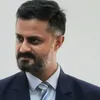Refining professional lifecycle of teachers, this startup wants to make teaching robust
Started in 2019, Centre For Teacher Accreditation (CENTA) caters to seven lakh teachers in India, and 60,000 teachers across the Philippines, Nigeria, Bangladesh, and the UAE, among others.
While helping build the National Skill Development Corporation (NSDC), Ramya Venkataraman worked with people from different professions. In the process, she realised that while millennia-old professions like medicine and law are thriving in the modern world, the same could not be said about teaching.
“Working in the education sector, we thought of several ways in which we could help teachers to improve—either by implementing policies such as mandatory 21 days of training, or appealing to the goodness inside teachers’ hearts, reminding them that they are building the future of the country and nudging them towards training,” Ramya tells YourStory.
However, she adds that none of the approaches would be sustainable unless teachers can be satisfied knowing that it would help them in their careers—either through a monetary reward or recognition for their work.
An alum of IIT Delhi and IIM Calcutta, ex-Mckinsey associate, and a ‘Women Transforming India’ awardee—recognised by NITI Aayog and United Nations in 2020, Ramya founded Centre for Teacher Accreditation () in 2014 to contribute toward making teaching a “robust profession.”
Bengaluru-based CENTA, which began operation in 2019, is a teacher certification startup catering to the entire professional life cycle of the teacher—certification, career growth, professional development, and recruitment.

CENTA is a teacher certification startup catering to the entire professional life cycle of the teacher/
How it works
CENTA has three kinds of offerings, including in both B2C and B2B segments. It offers certification programmes for teachers, recruitment to different schools (in India and the UAE) and edtech startups (in India and US), and accreditation for programmes developed by other organisations.
Having been certified by the Trademark Authority of India, CENTA also provides accreditation for courses developed by other organisations. The MyCENTA platform also acts as a marketplace for the programmes it accredits.
The certification programmes for teachers include Early Childhood Training, Classroom Communication, Content Development and Planning, Study Assessment and Remediation, among others.
“Teachers take these programmes and certifications because employers provide opportunities on the platform which could be in the form of jobs and supplemental learning. Not only this, a range of employers have internal policies that mandate these programmes. For instance, there are private schools that say that they are using this for performance appraisal,” the Founder and CEO of CENTA explains.
Most of these courses are approximately priced between Rs 300-1,400. The startup also offers premium courses such as early childhood training which cost between Rs 3,000-85,000. It has also partnered with institutes such as Klay Prep Schools, Education World, CBSE, and Manipal University to facilitate these courses.
While this is the primary source of revenue for CENTA, it also charges accreditation fees from entities. Employers also pay MyCENTA for finding teachers on the platform.
MyCENTA platform
The company also helps teachers find supplemental income opportunities including online tutoring and content development through the MyCENTA platform.
Launched in 2019, MyCENTA is a web-based platform that analyses large volume data of teacher competencies, activities, etc, and uses it to issue machine learning (ML) based suggestions for teacher training.
The platform also facilitates mobility for teachers by helping them find jobs in higher positions in other schools and educational institutes—both within India and abroad. Edtech startups also approach CENTA for hiring teachers at different levels.
“Whether CENTA exists or not, there is a 20-25 percent movement (in terms of promotions and better job opportunities) in the sector. Today, it happens in a very ad hoc manner with information asymmetry, whereas with the MyCENTA platform, information is being matched. While schools are looking for competent teachers, we are able to say that a CENTA certificate shows that the teacher is competent and is worthy of that job because of the platform,” explains Ramya.
The MyCENTA platform currently caters to seven lakh teachers in India, and 60,000 teachers across the Philippines, Nigeria, Bangladesh, the UAE, and a few other countries.
“Apart from cities, our teachers hail from more than 6,000 towns across the country. We also have teachers from very small villages in Ladakh, Karnataka, Tamil Nadu, Arunachal Pradesh, and Rajasthan,” she says.
“When we go to a Tier II or III town, we realise that people do not get alternative opportunities at all, and therefore, a platform like this just makes them feel like they are a part of something national and they should engage as professionals, and that hunger is quite significant,” notes Ramya.
Future plans
CENTA aims to grow its teacher base to two million by March 2023. Building on its current footprint, the startup also plans to deepen its international presence.
It plans to widen its range of learning products portfolio, programmes, and courses in the next 12 months. CENTA is also looking to raise a round of funding in the near future.
The startup has raised two small investment rounds of less than a million dollars each so far, targeted at building the platform, community, certification, brand, and acceptance.
The company clocked approximately Rs 2.5 crore in revenue in FY 2022. It is looking to cross Rs 10 crore in revenue by FY 2023.
According to NITI Aayog, India will have the largest number of young people in the globe by 2030, requiring the need for trained teachers who can impart the necessary knowledge and skills. According to a TeamLease report titled “Digital Transformation of the Teaching Community,” due to lack of training, around 79.34 percent of teachers learned by practice.
CENTA faces competition from startups including Suraasa, Tutoroot, and Muzigal.
Edited by Kanishk Singh









